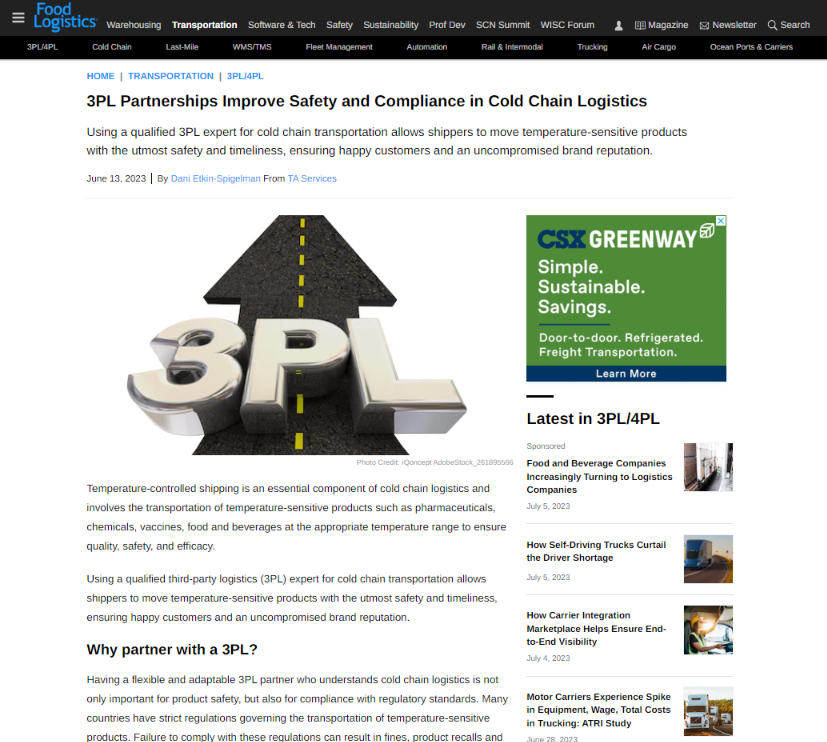Jul 25, 2023
3PL Partnerships Improve Safety & Compliance in Cold Chain Logistics, by Dani Etkin-Spiegelman
An article recently published in FoodLogistics.com by Dani Etkin-Spiegelman, Chief Revenue Officer of TA Services’ Toronto, Ontario Canada office, gives perspective on how using a qualified third-party logistics (3PL) expert for cold chain logistics allows shippers to move temperature-sensitive products with the utmost safety and timeliness, ensuring happy customers and an uncompromised brand reputation. To read the full article, visit FoodLogistics.com.
Temperature-controlled shipping is an essential component of cold chain logistics and involves the transportation of temperature-sensitive products such as pharmaceuticals, chemicals, vaccines, food and beverages at the appropriate temperature range to ensure quality, safety, and efficacy.
Using a qualified third-party logistics (3PL) expert for cold chain transportation allows shippers to move temperature-sensitive products with the utmost safety and timeliness, ensuring happy customers and an uncompromised brand reputation.
Why partner with a 3PL?
Having a flexible and adaptable 3PL partner who understands cold chain logistics is not only important for product safety, but also for compliance with regulatory standards. Many countries have strict regulations governing the transportation of temperature-sensitive products. Failure to comply with these regulations can result in fines, product recalls and damage to a company’s reputation. An experienced cold chain 3PL will be well versed with these wide range of compliance regulations, making safety and due diligence a worry of the past.
3PLs understand the ins and outs of cold chain management. They know that temperature controlled shipping relies on specially designed containers that can maintain a specific temperature range. They can provide access to containers ranging from simple insulated boxes to sophisticated refrigerated trucks which are critical for preserving the integrity of perishable products, as exposure to extreme temperatures can cause irreversible damage – leading to spoilage, reduced efficacy or even safety concerns.
If fresh produce is not kept at the right temperature during transportation […]
To read the full article, visit FoodLogistics.com.




